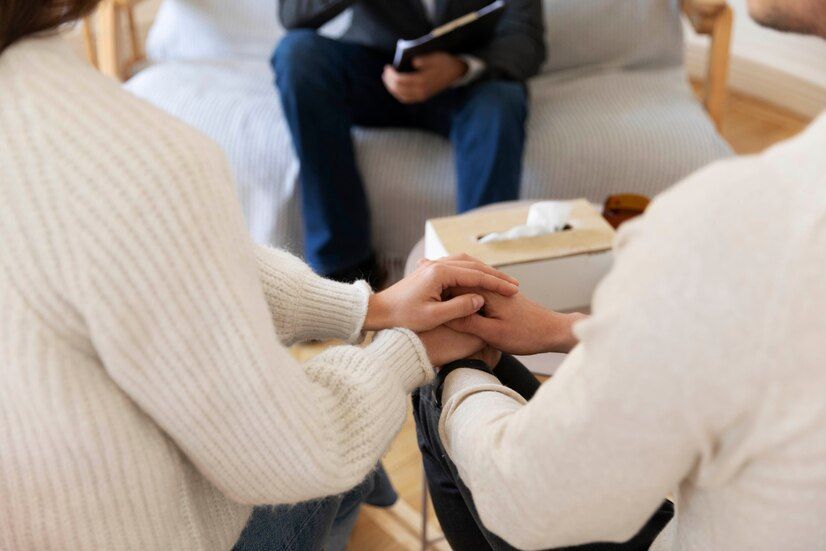10 Signs You May Have Rape Trauma and Why Therapy Could Be Essential for Healing
Experiencing sexual assault is a profoundly traumatic event that can have far-reaching effects on a person’s mental, emotional, and physical well-being. Rape trauma, also known as post-traumatic stress disorder (PTSD) resulting from sexual violence, can significantly impact every aspect of life. Recognizing the signs of rape trauma and seeking therapy or counseling can be crucial steps toward healing and recovery. Here are ten reasons you may have rape trauma and why professional help is essential.
1. Persistent Fear and Anxiety
Feeling constantly afraid or anxious, even in safe situations, is a common response to trauma. This heightened state of alertness, known as hypervigilance, can make it difficult to relax and enjoy life. Therapy can help you manage anxiety and gradually reduce hypervigilance.
2. Intrusive Thoughts and Flashbacks
Experiencing intrusive thoughts or flashbacks that make you feel as though you are reliving the trauma can be debilitating. These can be triggered by reminders of the assault or occur unexpectedly. Counseling can provide strategies to manage and reduce these distressing experiences.
3. Avoidance Behavior
Avoiding places, people, or activities that remind you of the trauma is a common coping mechanism. However, this avoidance can limit your life and prevent you from engaging in everyday activities. Therapy can help you confront and process these fears, allowing you to reclaim your life.
4. Emotional Numbness
Feeling detached or emotionally numb, as if you are just going through the motions of life, can be a sign of trauma. This numbness is a protective mechanism but can hinder your ability to connect with others and experience joy. Counseling can help you reconnect with your emotions in a safe and supportive environment.
5. Hyperarousal Symptoms
Symptoms such as irritability, difficulty sleeping, and an exaggerated startle response are signs of hyperarousal, a common response to trauma. These symptoms can be exhausting and interfere with daily functioning. Therapy can teach you techniques to calm your nervous system and improve sleep and relaxation.
6. Guilt and Shame
Feeling overwhelming guilt or shame about the assault, even though it was not your fault, is a significant burden many survivors carry. These feelings can prevent you from seeking help and moving forward. A therapist can help you reframe these thoughts and understand that the blame lies solely with the perpetrator.
7. Depression and Hopelessness
Experiencing persistent feelings of sadness, hopelessness, and a lack of interest in activities you once enjoyed can indicate depression, often associated with trauma. Therapy can provide support and tools to manage depression and rediscover hope and purpose in life.
8. Difficulty Trusting Others
After experiencing such a profound violation of trust, it can be challenging to trust others, even those who have your best interests at heart. This can strain relationships and lead to isolation. Counseling can help you rebuild trust and foster healthy, supportive relationships.
9. Physical Symptoms
Trauma can manifest in physical symptoms such as headaches, gastrointestinal issues, and chronic pain. These symptoms are a reminder that the impact of rape is not only psychological but also physical. Therapy can help you address these symptoms and improve your overall health.
10. Suicidal Thoughts
Experiencing thoughts of self-harm or suicide is a serious sign that you need immediate help. Trauma can make life feel unbearable, but there is hope and support available. Therapy can provide a lifeline, offering strategies to manage these thoughts and find a path to healing.
Why You Should Consider Therapy
Recognizing these signs is the first step toward addressing rape trauma. Therapy or counseling offers a safe, non-judgmental space to explore the impact of the trauma and develop effective strategies for healing. Here’s how therapy can help:
- Processing the Trauma: Therapists can help you work through the trauma, understand its impact, and integrate the experience into your life in a way that reduces its power over you.
- Developing Coping Strategies: You’ll learn techniques to manage symptoms such as anxiety, depression, and hyperarousal, improving your ability to function day-to-day.
- Improving Emotional Regulation: Therapy can teach you how to manage intense emotions and reduce feelings of guilt, shame, and hopelessness.
- Enhancing Relationships: By addressing trauma, you can improve your ability to trust and connect with others, building a supportive network around you.
- Promoting Empowerment: Counseling fosters a sense of empowerment, helping you regain control over your life and make positive changes for your future.
Seeking help is a brave and necessary step toward healing. If you recognize yourself in any of these signs, consider reaching out to a professional therapist or counselor. Addressing rape trauma can lead to profound improvements in your mental, emotional, and physical well-being, paving the way for a more hopeful and empowered life.
CATEGORIES
We Work Together to Solve Current Challenges
CONTACT US
1-571-330-2829
office@ariseccc.com
10801 Johnston Road
Suite 210 Charlotte NC
28226-4558
USEFUL LINKS
STAY INFORMED
You need a helping hand with your project?
We will get back to you as soon as possible
Please try again later
COUNSELING CENTER HICKORY & CHARLOTTE NORTH CAROLINA










